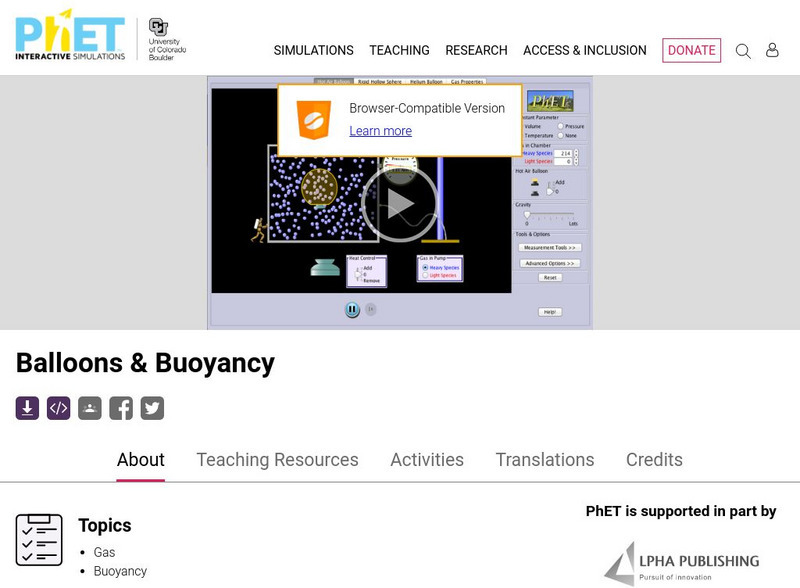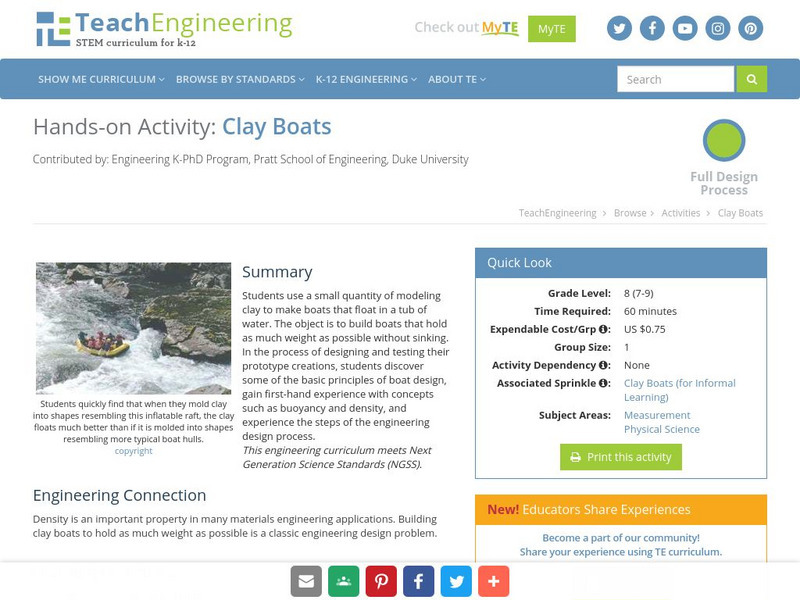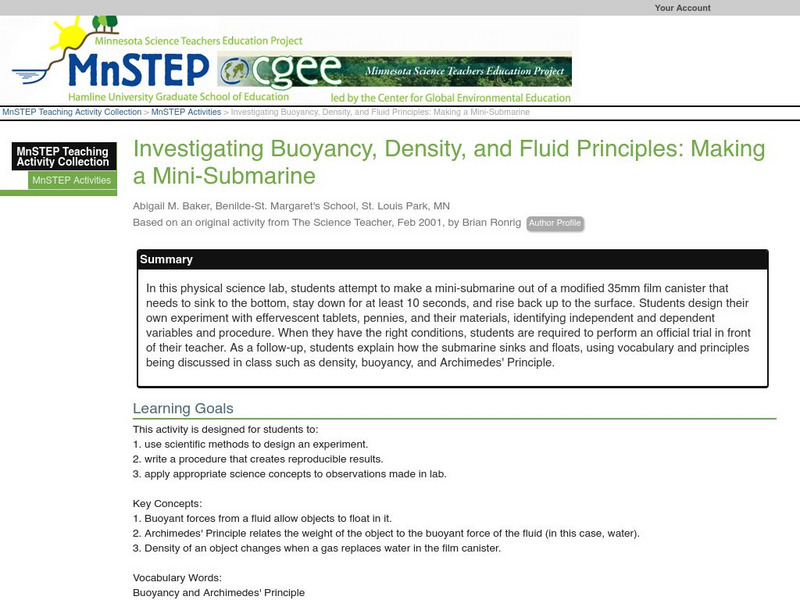Hi, what do you want to do?
Mocomi & Anibrain Digital Technologies
Mocomi: Buoyancy
Ever wonder why/how things float? This concept is called buoyancy. Take this interactive journey to learn and understand how and why certain materials float and others sink to the ocean floor.
Center of Science and Industry
Cosi Columbus: Buoyant Bubble [Pdf]
Learn about density in this hands-on science experiment. Includes full list of materials, procedures, and scientific explanation of what makes an object float or sink. [PDF]
University of Colorado
University of Colorado: Ph Et Interactive Simulations: Balloons & Buoyancy
Students studying buoyancy will better understand its concepts with this virtual experiment using various balloons and testing what makes them float or sink.
My Science Site
Density Demonstration: Coke vs. Diet Coke [Pdf]
Help students brainstorm and find a solution as to why Diet Coke floats and Coke sinks. Student will learn to define what density is as they engage in this creative lab. This resource is in PDF form; requires Adobe Reader.
Middle School Science
Mss: Density Demonstration: Coke vs. Diet Coke
In this demonstration, students will brainstorm to find a solution as to why Diet Coke floats and Coke sinks. Through this exercise students will arrive at a definition of density.
TeachEngineering
Teach Engineering: Clay Boats
Each student uses a small quantity of modeling clay to make a boat that will float in a tub of water. The object is to build a boat that will hold as much weight as possible without sinking. In the process of designing and testing their...
Science Education Resource Center at Carleton College
Serc: Investigating Buoyancy, Density, and Fluid Principles: Make Mini Submarine
In this lab, students will use the scientific method to design an experiment that explains how/why a submarine floats and sinks.
PBS
Pbs Teachers: Scientific American: Beneath the Sea: Blowing Ballast
Explore the use of ballast to manipulate buoyancy in submarines by building a model of a submersible using two-liter bottles and balloons. Describe the balance of forces that is responsible for the surfacing and diving of submersibles.
Other popular searches
- Sinking and Floating
- Floating and Sinking Objects
- Sinking or Floating
- Science Floating and Sinking
- Free Floating and Sinking
- Floating and Sinking Water
- Floating and Sinking Inquiry
- Water Floating Sinking
- Sinking/floating Items
- Science Floating Sinking






![Cosi Columbus: Buoyant Bubble [Pdf] Activity Cosi Columbus: Buoyant Bubble [Pdf] Activity](https://static.lp.lexp.cloud/images/attachment_defaults/resource/large/FPO-knovation.png)



